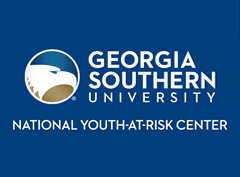Reaching for the Light: Using Writing as a Creative and Transformative Process to Engage Struggling EL Students
Location
ESOL - Seguin
Focused Area
Improving the Educational Setting of Students in ESOL Programs
Relevance to Focused Area
Not Available
Primary Strand
Academic Achievement & School Leadership
Relevance to Primary Strand
Not Available
Brief Program Description
In this interactive workshop, participants will explore practical and innovative ways to use writing as a creative and transformative process in working with struggling EL students, particularly those at the middle, high school, and college levels. Using a framework that combines best practices in EL literacy with transformative social justice pedagogy and Ubuntu praxis, Dr. Marina Gillmore will guide educators, school leaders, and other change agents through a reflective and pragmatic experience that looks at how to use research-based practices to foster improved literacy and overall academic success in the lives of some of our most disenfranchised and struggling students.
Summary
Not Available
Evidence
Not Available
Format
Individual Presentation
Biographical Sketch
Not Available
Start Date
10-24-2016 1:00 PM
End Date
10-24-2016 3:30 PM
Recommended Citation
Gilmore, Mariana, "Reaching for the Light: Using Writing as a Creative and Transformative Process to Engage Struggling EL Students" (2016). National Youth-At-Risk Conference, West (2015-2017). 5.
https://digitalcommons.georgiasouthern.edu/nyar_vegas/2016/esol/5
Reaching for the Light: Using Writing as a Creative and Transformative Process to Engage Struggling EL Students
ESOL - Seguin
In this interactive workshop, participants will explore practical and innovative ways to use writing as a creative and transformative process in working with struggling EL students, particularly those at the middle, high school, and college levels. Using a framework that combines best practices in EL literacy with transformative social justice pedagogy and Ubuntu praxis, Dr. Marina Gillmore will guide educators, school leaders, and other change agents through a reflective and pragmatic experience that looks at how to use research-based practices to foster improved literacy and overall academic success in the lives of some of our most disenfranchised and struggling students.
